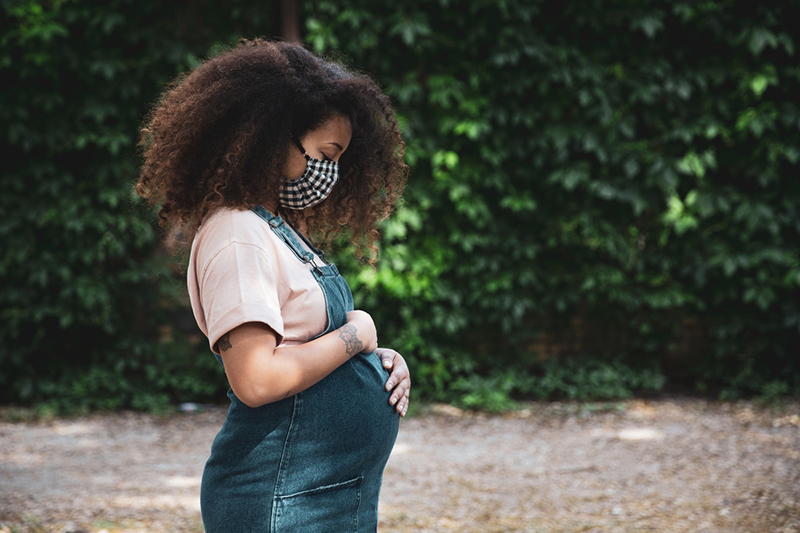
An antibody treatment in early pregnancy for women infected with cytomegalovirus does not appear to reduce the risk of infection or death among their newborns, an NIH-funded study suggests. The findings contradict several smaller studies on the treatment, known as hyperimmune globulin, that suggested the treatment was effective.
The study was led by B.L. Hughes of Brown University. It appears in the New England Journal of Medicine. Funding was provided by NIH’s Eunice Kennedy Shriver National Institute of Child Health and Human Development (NICHD).
Background
Cytomegalovirus is a common virus that causes few symptoms in healthy people but can cause death and serious health effects when transmitted to fetuses during pregnancy.
Newborn cytomegalovirus infection affects as many as 40,000 U.S. infants each year. The infection is linked to stillbirth, newborn death, deafness, and cognitive and motor delays. Among pregnant women with cytomegalovirus infection, 30 to 45% of their fetuses can become infected, with 10% having symptoms at birth. For infants born to infected mothers, 20% have no signs of infection at birth but develop deafness and other neurologic effects later in life.
Cytomegalovirus hyperimmune globulin contains antibodies against cytomegalovirus derived from the plasma of people who have been infected with the virus. Previous studies of cytomegalovirus hyperimmune globulin have suggested that it may be effective in treating cytomegalovirus infection during pregnancy.
In the current study, roughly 400 women who tested positive for the virus before the 23rd week of pregnancy were assigned at random to receive hyperimmune globulin or a placebo. The researchers evaluated the results in terms of a single primary outcome—whether the fetus had cytomegalovirus infection, the newborn had a cytomegalovirus infection by three weeks of age, or the fetus or newborn died.
Results
The study was stopped early for futility when interim results indicated it was unlikely to achieve statistically significant results. The primary outcome occurred in almost 23% of infants receiving hyperimmune globulin and slightly more than 19% receiving the placebo, a difference that was not statistically significant. Death occurred in nearly 5% of fetuses or newborns in the hyperimmune globulin group and in 2.6% of the placebo group. Preterm birth occurred in more than 12% of the hyperimmune globulin group and more than 8% of the women in the placebo group. Participants receiving hyperimmune globulin were more likely than those receiving the placebo to develop headaches and chills.
Significance
The authors concluded that hyperimmune globulin treatment of cytomegalovirus infection in pregnancy did not decrease the likelihood of fetal or newborn cytomegalovirus infection or death.
Reference
Hughes, BL, et al. A trial of hyperimmune globulin to prevent congenital cytomegalovirus infection. New England Journal of Medicine. 2021.

 BACK TO TOP
BACK TO TOP